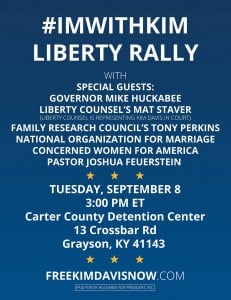Julie Rodgers, advocate of the notion of a “gay Christian” identity, resigned from her position as ministry associate for spiritual care at Wheaton College (IL) on the same day she admitted her support for homosexual relationships. The news was confirmed by LaTonya Taylor, the college’s director of media relations, in an email:
Julie Rodgers recently held a position at Wheaton College. Her work schedule was consistent with the academic year and as such, she finished her time on campus in May. Today, Julie notified the College that she is resigning her position, effective immediately, and will not be returning in August.
Rodgers shared the news in a lengthy personal essay on her blog:
Though I’ve been slow to admit it to myself, I’ve quietly supported same-sex relationships for a while now.
In her role at Wheaton, Rodgers was specifically charged with providing counseling to Refuge, a campus group for students struggling with same-sex attraction. She was employed less than one year. Wheaton requires all students, faculty and staff to affirm its “Community Covenant” outlining the college’s position on a range of theological and moral issues, including homosexuality. The Covenant states “followers of Christ will… uphold chastity among the unmarried (1 Cor. 6:18) and the sanctity of marriage between a man and woman (Heb. 13:4).” It goes on to state that scripture condemns “sexual immorality, such as the use of pornography (Matt. 5:27-28), pre-marital sex, adultery, homosexual behavior and all other sexual relations outside the bounds of marriage between a man and woman (Rom. 1:21-27; 1 Cor. 6:9-10; Gen. 2:24; Eph. 5:31).” Rodgers was profiled in a WORLD Magazine article in December 2014. In that interview, she is described as a celibate, gay Christian, who views homosexual sex as sinful. Wheaton President Philip Ryken is quoted saying: “The clear effect of Julie’s ministry has been to draw students in the direction of biblical faithfulness, including areas of sexuality.” That does not seem to be so, according to Rodgers’ own testimony, in which she describes affirming some students’ leanings towards celibacy, but also others’ desire to marry a person of the same sex:
When young people have angsted at me about the gay debate, I’ve just told them to follow Jesus—to seek to honor Him with their sexuality and love others well. For some, I imagine they will feel led to commit to lifelong celibacy. For others, I think it will mean laying their lives down for spouses and staying true to that promise to the end.
Wheaton should be applauded for attempting to meet the needs of students who struggle with sex and questions of sexual identity. Every institution of Christian higher education must take seriously the prevalence of all sorts of sexual confusion and sin on campus, but particularly homosexuality, a burden whose weight has proven too much to bear for far too many of our beloved brothers and sisters. But the only way — the only way — to address these crucial questions effectively is with the truth of the Gospel. As theologian Owen Strachan has written, Rodgers’ intentions are good, but she is confused and leading others away from the truth. We must not allow vulnerable students to meander down the alluring path of affirmation, or to shrug off the debate over biblical sexuality as a tertiary theological question not worth the time, effort or strife. Hiring Rodgers and giving her access to students as a voice of wisdom and authority was an error for which Wheaton owes students, parents and the entire alumni community an apology. But, for now at least, that era is over, and for that we can be thankful.











